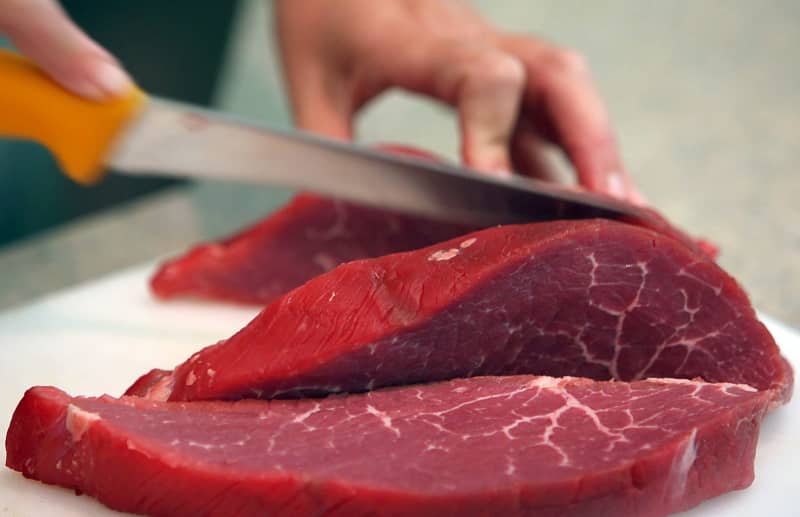Unions demand EU rules for meat sector after improvements in Germany

European food trade unions called for better working conditions for workers in the bloc's meat sector during a conference held in Berlin on Tuesday.
The European Federation of Food, Agriculture and Tourism (EFFAT) is proposing an EU directive for employment contracts in the sector, along with increased checks.
"The working conditions in the meat sector have stained the European labour market. Regardless of its profitability, a sector cannot truly thrive if built on exploitation and social dumping," EFFAT General Secretary Kristjan Bragason said.
These issues could no longer be tackled at national level, and an EU legal framework was required to prevent companies shifting jobs between countries, he said. There was a shortage of workers, but the solution was not to recruit abroad, but improved working conditions, he said.
The pandemic brought about change in Germany. When workers in meat-packing plants were infected on a large scale, it emerged that many were foreign contract workers, living and working under poor conditions. Legislation was enacted banning subcontracting in the sector.
Guido Zeitler, head of Germany's NGG food and hospitality union, said it had taken years before the "exploitative structures of the German meat industry" had finally been banned. "This was a milestone, which we now want to achieve together for Europe," he said.
Companies now employed the workers directly, and no longer through subcontractors, and concerns about jobs being shifted abroad had turned out to be largely unjustified, Zeitler said.
But he added that further improvements were needed. "Dubious former subcontractors are still up to mischief as recruitment agencies, transporters, and accommodation providers. We urgently need more regulation and stricter controls here – in Germany and Europe," Zeitler said.
Bragason said that conditions in Poland, Hungary and Romania, and in Ireland in particular, remained scandalous.

